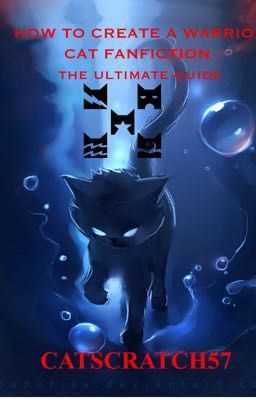
If you’re a fan of a specific book, movie, or TV show, you might have thought about writing fanfiction yourself. Fanfiction is a form of fiction where writers take existing characters and storylines from a source material, like a novel or a TV show, and create their own original work. It allows you to explore new ideas, develop characters further, and connect with other fans in the fandom.
Writing fanfiction can be a fun and rewarding experience, but it can also be challenging. In this article, we will explore the importance of choosing the right fandom and genre, how to come up with a good idea, and tips for writing and posting your fanfiction.
- 1. Choose the Right Fandom and Genre
- 2. Come Up with a Good Idea
- 3. Develop Your Characters and Story
- 4. Write and Beta
- 5. Avoiding Pitfalls and Importance of Research
- 6. Engage with Your Audience and Respond to Feedback
- Writing Fanfiction Tips for Avoiding Common Pitfalls
- Table of Contents
- 1 Choose your fandom source material
- 2 Choose your concept, Identify the Gap
- 3 Write what you’d like to read
- 4 Decide how long it will be
- 5 Choose where to post it if you will
- 6 Come up with a regular posting schedule
- 7 Connect with other writers and fans
- 8 Seize the exposure
- Crossover Fanfiction
- Ideas for using crossover in your writing
- The importance of beta readers
- Videos:
- How to create a fanfic thumbnail? | tutorial
1. Choose the Right Fandom and Genre
When selecting the fandom you want to write fanfiction for, consider what you’re passionate about. It could be a book series, a TV show, a movie, or even a specific character. Choose something you’re familiar with and have a deep connection to. This will make it easier for you to write and will also help you connect with readers who share your enthusiasm.
Next, think about the genre you want to explore in your fanfiction. Do you want to stick to the original genre of the source material, or do you want to try something different? Consider what genres you enjoy reading and what you think would work well with the characters and storylines you’re working with.
2. Come Up with a Good Idea
Once you’ve chosen your fandom and genre, it’s time to come up with a good idea for your fanfiction. You could take a specific event from the source material and expand on it, write a prequel or sequel to the original story, or focus on a minor character and give them their own story. The possibilities are endless!
Consider what gaps or unanswered questions you’d like to explore through your fanfiction. Think about what storylines or character arcs you’d like to see developed further. Brainstorm and jot down your ideas until you find one that really excites you.
3. Develop Your Characters and Story

Once you have your idea, it’s time to start developing your characters and story. Take the time to research the source material and identify the specific traits and characteristics of the original characters. Stay true to these traits while also allowing your characters to grow and evolve in your fanfiction.
Outline the main plot points of your story, paying attention to pacing and structure. Think about how your story will connect to the source material and how it will resonate with both fans and new readers. Take care to avoid common pitfalls in fanfiction writing, such as Mary Sue characters or OOC (out of character) moments.
4. Write and Beta
Now it’s time to start writing your fanfiction. Set a regular writing schedule to help you stay on track. Consider posting your chapters or stories as you go to get feedback from readers and fellow writers. This will not only provide you with valuable input but also help you build an audience and get exposure for your work.
Before posting, it’s important to beta read your work. A beta reader is someone who reads your story before you publish it and gives you feedback on areas that could be improved. They can help you catch grammar and spelling mistakes, identify plot holes, and provide general suggestions for improvement. Find someone you trust and who is familiar with the source material to be your beta reader.
5. Avoiding Pitfalls and Importance of Research
When writing fanfiction, it’s important to balance your original ideas with the established canon of the source material. Before you start writing, do thorough research and familiarize yourself with the details of the world and the characters. This will help you maintain consistency and authenticity in your fanfiction.
Avoid copying or plagiarizing other fanfictions or published works. While it’s fine to draw inspiration from other writers, make sure to create your own original work. Stay true to your own unique voice and style.
6. Engage with Your Audience and Respond to Feedback
Once you start posting your fanfiction, engage with your readers and respond to their feedback. Be open to constructive criticism and use it to improve your writing. Encourage discussions in the comments section and interact with your readers. This will help you build a loyal fan base and create a supportive community around your work.
Remember, fanfiction is meant to be a fun and creative outlet for writers and fans alike. Enjoy the process, experiment with different ideas, and most importantly, have fun!
Writing Fanfiction Tips for Avoiding Common Pitfalls
Writing fanfiction can be a fun and creative outlet for fans to express their love for a particular fandom or story. However, it can also be challenging to navigate the pitfalls that come with creating fanfiction. In this article, we will provide you with 7 tips to help you avoid these common pitfalls and improve your fanfiction writing skills.
1. Choose a genre-specific idea: When writing fanfiction, it’s important to decide on a specific genre or concept to focus on. This will help you narrow down your ideas and connect them to the original material.
2. Do your research: Before you start writing, take the time to do some research on the source material. This will help you understand the canon and identify any gaps or inconsistencies that you can fill in with your fanfiction.
3. Connect with other writers: Joining fanfiction communities and forums can be a great way to connect with other writers and get feedback on your work. Having a beta reader can also help you identify any issues with your writing and improve it before posting.
4. Create a writing schedule: Fanfiction writing can be time-consuming, especially if you have a regular job or other responsibilities. Setting aside specific times each week to work on your fanfiction will help you stay consistent and ensure that you make progress.
5. Use Scrivener’s table of contents: If you’re writing a long fanfiction, using a writing software like Scrivener can be useful. It allows you to organize your chapters, scenes, and other contents easily.
6. Avoid overloading your story with characters or crossovers: While it may be tempting to include many characters or create crossovers with different fandoms, it’s important to choose wisely. Too many characters or crossovers can confuse your readers and take away from the main plot.
7. Be active in the fandom: Engaging with the fandom community is essential for a fanfiction writer. It not only helps you network with other fans but also exposes you to different ideas and perspectives that can inspire and improve your writing.
By following these tips, you’ll be well on your way to writing fanfiction that stands out from the rest. Remember, the most important thing is to have fun and be true to yourself and your ideas. Happy writing!
| Source: | https://www.example.com/fanfictiontips |
| Word Count: | 438 |
Table of Contents
- 1. Introduction to Fanfiction
- 2. Choosing a Fandom
- 3. Generating Ideas for Your Fanfiction
- 4. Developing Your Fanfiction Concept
- 5. Writing Techniques for Fanfiction
- 6. Avoiding Common Pitfalls in Fanfiction
- 7. Getting Feedback on Your Fanfiction
- 8. Editing and Revising Your Fanfiction
- 9. Preparing Your Fanfiction for Posting
- 10. Building an Audience for Your Fanfiction
- 11. Interacting with Other Fanfiction Writers
- 12. The Importance of Research in Fanfiction
- 13. Using Beta Readers for Your Fanfiction
- 14. Publishing Your Fanfiction
- 15. Exploring Original Fiction Writing
1 Choose your fandom source material
When diving into the world of fanfiction, the first step is to choose your fandom source material. This can be anything that you are passionate about, whether it’s a popular book series like Harry Potter, a TV show like Game of Thrones, or a movie franchise like Marvel. The key is to choose something that you are already familiar with and have a strong connection to.
Once you have identified your fandom, you can start brainstorming ideas for your fanfiction. Many writers find it helpful to read through the original canon material again to refresh their memory and get inspiration. You can also search for fan theories and ideas that others have posted online. It’s important to note that while it’s okay to borrow ideas from others, it’s always good practice to come up with your own unique twist or take on the story.
If you find yourself struggling to come up with ideas, don’t worry! There are many resources available online where you can find prompts, challenges, and even writing contests specific to your fandom. You can also connect with other fans through forums or social media groups to bounce ideas off each other.
When choosing your source material, it’s also important to consider the size of the fandom and the availability of active readership. Some fandoms might be more popular and have a larger fan base, which means more exposure for your fanfiction. On the other hand, smaller fandoms can offer a tighter-knit community where you can connect with fellow fans on a more personal level.
Once you’ve chosen your fandom, it’s a good idea to do some research on the existing fanfictions in that genre. This will give you an idea of what has already been done and help you identify any gaps in the content that you can fill with your own story.
Another important aspect to consider is the genre or genres you want to write in. Fanfictions can span a wide range of genres, from romance to action to horror. Think about what interests you as a writer and what will resonate with your intended audience. Remember, fanfiction is a creative outlet, so feel free to explore different genres that you may not have written in before.
Finally, once you’ve chosen your fandom and have a good idea for your fanfiction, it’s time to start writing. Set a regular writing schedule for yourself and stick to it. Consider using beta readers, whether they are friends or fellow fans, to give you feedback on your work. Their input can help you grow as a writer and improve the overall quality of your fanfiction.
Remember, the most important thing is to enjoy the writing process and have fun with your fanfiction. Don’t be afraid to take risks and try something new. Seize the opportunity to connect with other fans and share your story with the world. Happy writing!
2 Choose your concept, Identify the Gap
When it comes to writing fanfiction, one of the most important decisions you’ll make is choosing the concept for your story. This concept will help you identify the gap in the original material that you can fill with your own unique ideas and creativity.
1. Choose a Fandom: The first step is to decide which fandom or book series you want to write fanfiction for. Think about what you are passionate about and what fandoms you are most familiar with. This will make it easier for you to connect with the source material and create a story that stays true to the original canon.
2. Find Your Audience: Before you start writing, think about who your target audience is. Are you writing for fans of the fandom? Or are you looking to attract readers who may not be familiar with the source material? This will help you decide the tone, style, and content of your fanfiction.
3. Identify the Gap: Once you’ve chosen your fandom and audience, it’s time to identify the gap in the source material. This gap could be a specific event or relationship that was left unexplored, or it could be a completely original idea that you think would fit well within the existing universe.
4. Avoiding Pitfalls: When working with an established fandom, it’s important to avoid common pitfalls that can alienate readers. These include contradicting established canon, introducing Mary Sue or Gary Stu characters, and disregarding the basic rules and principles of the universe.
5. Connect the Dots: As you flesh out your concept, think about how your fanfiction will connect to the existing material. Will you be using existing characters and settings, or will you introduce new ones? How will your story fit into the overall timeline of the series?
6. Beta Readers and Feedback: Once you have a concept in mind, it can be helpful to share it with beta readers or friends who are familiar with the fandom. They can provide valuable feedback and help you refine your ideas before you start writing.
7. Schedule Yourself: Set a schedule for yourself to ensure you have regular progress on your fanfiction. This could be a certain number of words or chapters per week, or a specific day of the week where you commit to writing. This will help you stay motivated and ensure that your work gets completed.
8. Post and Share: Once your fanfiction is written, edited, and polished, it’s time to share it with the fanfiction community. There are many websites where you can post your work and connect with other writers and readers who share your passion for the fandom. Be open to feedback and engage with your readers to build a community around your fanfictions.
By following these tips and avoiding the pitfalls, you’ll be well on your way to creating engaging fanfiction that fills the gap in the original material and delights readers and fans alike!
3 Write what you’d like to read
When it comes to writing fanfiction, one of the most important things is to write a story that you would like to read yourself. This is because fanfiction is all about exploring the world of your favorite fandoms and creating a story that you, as a fan, would enjoy.
One of the benefits of writing fanfiction is that you have a built-in audience of fans who are already familiar with the world and characters. This means that you don’t have to spend as much time on exposition and can jump right into the action. You can write a story that assumes a certain level of knowledge about the fandom, which can be a lot of fun for both you and your readers.
Another advantage of writing fanfiction is that you can explore ideas and scenarios that may not be possible in the original material. For example, you can create a crossover between two different fandoms, or you can take a minor character and give them a more prominent role in the story. The possibilities are endless, and it’s a great opportunity to let your imagination run wild.
However, it’s important to keep in mind that while fanfiction allows for a lot of creative freedom, there are certain pitfalls to avoid. For example, it’s important to respect the original material and the intentions of the author. It’s also important to avoid copying and pasting chunks of text from the source material and passing them off as your own work.
One way to ensure that your fanfiction is well-written and engaging is to find a beta reader or a friend who can provide feedback and help you improve your writing. They can point out any plot holes, inconsistencies, or areas that need further development. Having someone to bounce ideas off of and discuss your work with can be incredibly helpful.
As a fanfiction writer, you should also take the time to research and familiarize yourself with other fanfictions in your fandom. This can give you a sense of what’s already been done and help you come up with unique ideas and angles for your own story. It can also help you connect with other writers in the fandom and get feedback on your work.
Finally, when it comes to posting your fanfiction, it’s important to have a regular posting schedule. This will help you build an audience and keep readers engaged. Whether you post once a week, once a month, or somewhere in between, having a consistent schedule will make it easier for readers to find your work and keep coming back for more.
In conclusion, when writing fanfiction, it’s important to write a story that you would like to read yourself. Don’t be afraid to explore new ideas and scenarios, but always respect the original material and the work of the author. Take the time to research and familiarize yourself with other fanfictions in your fandom, and consider finding a beta reader or friend to provide feedback. Finally, be consistent with your posting schedule to build a regular audience and keep readers engaged.
4 Decide how long it will be
Deciding the length of your fanfiction is an important step in the writing process. You need to consider how much time and effort you’d like to invest in the project, as well as the concept or ideas you have in mind. The length will also depend on where you plan to publish or post your fanfiction.
If you’re working with a specific fandom, it’s essential to identify the genre and choose the appropriate length for your story. Some fandoms have a preference for longer fanfictions, while others might prefer shorter ones. Research the fanfiction scene in your chosen fandom to get a better idea of what readers like and what has already been written.
Another factor to consider is the content you want to include. If you have a lot of material and ideas, a longer fanfiction might be suitable to explore all those concepts. However, if you have a more concise idea that doesn’t require a long narrative, a shorter fanfiction might be the way to go.
It’s also important to be realistic about your own writing capabilities and schedule. How much time and effort can you dedicate to writing? If you have limited time or prefer to work on multiple projects at once, a shorter fanfiction might be more manageable.
On the other hand, if you’re confident in your writing abilities and have the time to devote, a longer fanfiction can give you the opportunity to dive deep into your story and develop your characters and plotlines. Just remember to avoid common pitfalls like losing focus or getting stuck in a narrative gap.
Deciding the length of your fanfiction also goes hand in hand with deciding if you’ll be posting it as a whole or in parts. Some writers prefer to post their fanfictions chapter by chapter, while others choose to publish the complete work once it’s finished. Both options have their pros and cons, so think about what would work best for you.
Finally, if you’d like feedback and help with your writing, consider finding a beta reader or a friend who can give you constructive criticism and help you improve your fanfiction. They can also give you guidance on the length of your fanfiction and help you avoid any common writing mistakes.
In summary, when deciding the length of your fanfiction:
- Identify the genre and research fanfiction scene in your chosen fandom.
- Choose the appropriate length based on the content and ideas you have.
- Consider your own writing capabilities and schedule.
- Decide if you’ll be posting your fanfiction all at once or chapter by chapter.
- If needed, seek feedback and assistance from beta readers or friends.
By keeping these tips in mind, you’ll be able to create a fanfiction that appeals to your readers and gives you the opportunity to explore your ideas and creativity.
5 Choose where to post it if you will
Once you have written your fanfiction, the next step is to decide where you will post it. There are many different platforms and websites where you can share fanfiction, so you’ll need to choose the one that works best for you and your story.
Here are some tips to help you choose the right place to post your fanfiction:
- Consider the fandom: Different fandoms have different fanfiction communities, so think about where the majority of writers and readers for your fandom are. Posting your fanfiction in a community where people are already familiar with the source material can help you find a more engaged audience.
- Research the platform: Before you decide where to post, do some research on the platform or website. Look at the types of fanfictions that are already published there, the genre and content guidelines, and the overall feel of the site. This will help you identify if it’s the right fit for your fanfiction.
- Identify the target audience: Think about who you want to connect with through your fanfiction. Do you want to reach fans of the original book or novel, or do you want to attract readers who enjoy fanfictions in general? This will help you choose a platform that aligns with your target audience.
- Consider cross-posting: If you’re unsure about which platform to choose, you could consider cross-posting your fanfiction on multiple websites. This allows you to reach a wider audience and also gives you the opportunity to see which platform works best for you.
- Avoid common pitfalls: When choosing a platform, be cautious of any red flags or potential pitfalls. Look for sites that have a good reputation, provide support for writers, and have a clear and fair policy on copyright and plagiarism.
Remember, it’s important to choose a platform that resonates with you and offers the best opportunity for your fanfiction to be read and enjoyed by others. With the right choice, you can take your fanfiction to the next level!
6 Come up with a regular posting schedule
Once you have written your fanfiction and have it all polished up, it’s time to start thinking about how you will release it to your readers. Having a regular posting schedule is important for keeping your fans engaged and coming back for more.
The first step is to decide how often you want to post. Some writers opt for a weekly schedule, while others may post bi-weekly or even monthly. Choose a schedule that works for you and allows you to consistently produce good quality material.
Next, consider what day and time you will release your fanfiction. This will depend on your target audience and when they are most likely to be active and open to reading new content. You can do some research to see what days and times other fanfiction writers in your genre are publishing their work, or you can simply choose a day and time that you believe will work well for you and your fans.
It’s also a good idea to have a backlog of material ready to go. Sometimes life can get in the way, and you might not be able to write as much as you’d like. By having a few chapters or stories already written and ready to publish, you can avoid any gaps in your posting schedule and ensure that you always have something to share with your fans.
Consider using a content calendar or a schedule table to help you stay organized. This can be as simple as a spreadsheet or a calendar pinned to your wall. You can use it to plan out your posts, jot down ideas for future fanfictions, and keep track of any research or source materials you’ll need.
Once you have your regular posting schedule in place, make sure to stick to it. Building a dedicated audience takes time and consistency, so be diligent about posting on your scheduled days. This will keep your fans engaged and eagerly anticipating your next release.
Remember that fanfiction is all about connecting with others who share your love for a particular fandom. Be active in the community, read and comment on other fanfictions, and engage with your readers. This will not only help you find new writers and ideas, but will also help you build a loyal following.
Seize the opportunity to make your fanfiction unique and different from others. While some fanfiction writers may stick to the canon of the original work, you could take a different approach and explore new concepts and ideas. This will not only give your readers something fresh and exciting to enjoy, but it will also showcase your creativity as a writer.
Remember, creating fanfiction is all about having fun and expressing your love for a particular fandom. By coming up with a regular posting schedule, you can ensure that you’re sharing your work with as much of your audience as possible and keeping them engaged week after week.
7 Connect with other writers and fans
In the world of fanfiction, connecting with other writers and fans can be an important aspect of the writing process. By connecting with like-minded individuals, you can gain valuable insights, share your work, and find support and inspiration. Here are some tips on how to connect with other writers and fans:
- Join online communities: There are many online communities where fanfiction writers and fans gather to discuss stories, share ideas, and provide feedback. You can join forums, social media groups, or writing platforms dedicated to fanfiction to connect with others who share your interests.
- Attend fan conventions: Fan conventions are a great way to meet other writers and fans in person. These events often have panels, workshops, and meet-ups specifically for fanfiction writers. You can learn from experienced writers, make new connections, and even participate in fanfiction contests or events.
- Become an active beta reader: Offering to be a beta reader for other writers is a great way to connect with them and improve your own writing skills. By providing constructive feedback and suggestions, you can build relationships with other writers and receive feedback on your own work in return.
- Start a writing group: If you have a group of fellow fanfiction writers, you can start a writing group where you meet regularly to share your work, give each other feedback, and support one another. This can provide a sense of camaraderie and accountability, helping you stay motivated and improve your writing.
- Participate in fanfiction challenges: Many online platforms host fanfiction challenges with specific prompts or themes. Participating in these challenges can help you connect with other writers who are interested in the same genre or fandom as you. It’s also a great way to push yourself creatively and get your work seen by a wider audience.
- Engage with readers and fans: Interacting with your readers and fans is essential for building a fan base and gaining exposure for your work. Respond to comments and messages, ask for feedback, and show appreciation for their support. This can help you establish a loyal following and motivate you to continue writing.
- Collaborate with other writers: If you come across another writer who shares your writing style or interests, consider collaborating on a fanfiction project together. This can not only result in a unique and original story but also provide mutual support and creative inspiration.
Connecting with other writers and fans is not only a way to improve your writing but also to find a sense of community and camaraderie in the fanfiction world. By reaching out, sharing your work, and engaging with others, you can create meaningful connections and take your fanfiction writing to new heights.
8 Seize the exposure
When it comes to fanfiction, writers have a unique opportunity to gain exposure and connect with a larger audience. If you’re a long-time writer or someone who’s just starting out, fanfiction can be a great way to get your work seen by others and build a regular readership.
One way to seize the exposure in fanfiction is by using popular fandoms to your advantage. You can decide to write fanfiction in a canon or original setting, and either way, you’ll be able to tap into a large and passionate fanbase. By posting your fanfiction in a well-established fandom, you’ll have a built-in audience of fans who are already invested in the characters and world you’re working with.
Another way to seize the exposure is by writing crossover fanfiction. This is when you take characters from one fandom and combine them with characters from another. By doing this, you can attract fans from multiple fandoms and generate interest in your story. Just be careful to make sure the crossover makes sense and is executed well.
If you’re working on an original novel or a different genre altogether, you can still find ways to connect with fanfiction readers. Consider writing fanfictions based on popular books, movies, or TV shows that are related to your own work in some way. This can help you tap into a potential audience that might be interested in your original material.
When posting your fanfictions, think about the importance of having a good table of contents and tags. This can help readers easily navigate your work and find the specific fandom or genre they’re interested in. You can also use tags to identify any important themes or ideas in your fanfiction, making it easier for readers to find exactly what they’re looking for.
It’s also a good idea to join fanfiction communities and forums to help promote your work. By being active in these communities, you can connect with other writers and readers who might be interested in your fanfiction. You can also find beta readers or friends who can offer feedback on your story and help you improve.
Research the fanfiction community and the specific fandoms you’re interested in before posting. Make sure you understand the rules and expectations of the community and try to avoid common pitfalls. This will help you make a good impression and increase your chances of being noticed.
Once you have your fanfiction posted, don’t just sit back and wait for readers to come to you. Promote your work through social media, writing groups, and any other channels you can think of. The more exposure you’re able to generate, the more people will have the chance to discover your writing.
To summarize, seizing the exposure in fanfiction is all about finding the right fandoms, connecting with readers, and promoting your work effectively. By taking advantage of the fanfiction community and using popular source material, you can increase your chances of being read and recognized.
| Tips: |
|---|
| 1. Choose fandoms that have a large and active fanbase. |
| 2. Identify gaps or common themes that haven’t been explored much in fanfiction. |
| 3. Connect with other writers and readers in the fanfiction community. |
| 4. Use beta readers or ask a friend to help improve your story. |
| 5. Research the fandom and the specific sources you’re using. |
| 6. Post regularly to keep your readers engaged. |
| 7. Avoiding common pitfalls in fanfiction writing. |
| 8. Seize the exposure by actively promoting your fanfiction. |
Crossover Fanfiction
Crossover fanfiction is a popular genre in fanfiction writing. It involves combining two or more fictional universes or characters from different sources into one cohesive story. Writing crossover fanfiction can be a fun and creative way to explore new ideas and bring together beloved characters from different fandoms. However, it requires careful planning and consideration to ensure a successful blend of the source materials. Here are some tips to help you create engaging crossover fanfiction:
| 1. | Choose your fandoms: | Decide which fandoms or sources you want to crossover. Consider the compatibility and thematic similarities of the different worlds and characters. It’s important to choose fandoms that have enough material to draw from. |
| 2. | Do your research: | Read and watch as much as you can from both fandoms to familiarize yourself with the source material. This will help you identify the key elements and characteristics of each universe and the characters involved. |
| 3. | Develop a concept: | Create a concept that will bring the two worlds together in a way that makes sense and is compelling. Think about how the characters from different fandoms will interact and how their universes will collide. |
| 4. | Avoid common pitfalls: | Be aware of common pitfalls such as overpowering characters, creating an inconsistent tone, or using too many characters. Keep the focus on the main characters and the central conflict. |
| 5. | Work with beta readers: | Get feedback from beta readers who are familiar with both fandoms. They can provide valuable insights and help you ensure the crossover is well-executed. |
| 6. | Seize the opportunity: | Crossover fanfiction can offer a unique opportunity to introduce readers from one fandom to another. Use this opportunity to expose readers to new fandoms and potentially gain more exposure for your work. |
| 7. | Post and interact: | Once your crossover fanfiction is written, posted it on fanfiction platforms or websites. Engage with readers and other writers in the fandom to build a community around your work. |
Remember that writing crossover fanfiction requires careful consideration and planning. It’s important to respect the original source material and the characters involved. By following these tips, you can create an engaging and unique crossover fanfiction that will appeal to both fans of the original fandoms and newcomers to the crossover concept.
Ideas for using crossover in your writing

When it comes to fanfiction, one of the most exciting concepts you can explore is the idea of crossover. Crossovers allow you to bring together characters, settings, and even entire worlds from different fandoms to create something truly unique and captivating. Here are some ideas and tips for using crossover in your writing:
1. Identify common themes: Think about the common themes or concepts that exist in both of the fandoms you want to crossover. This will help you find a connection point between the two and create a story that feels cohesive and meaningful.
2. Connect with the audience: One of the reasons readers enjoy crossovers is the opportunity to see their favorite characters from different sources come together. Use this to your advantage and think about how you can bring together beloved characters in a way that will captivate your audience.
3. Avoiding pitfalls: While crossover fanfictions can be exciting, it’s important to avoid common pitfalls. Make sure that the crossover makes sense within the established rules and canon of each fandom. This will help readers connect with your story and avoid confusion.
4. Get beta readers: Crossover fanfictions can be tricky to navigate, so having a beta reader can be immensely helpful. They can provide feedback on how well the different elements come together and offer suggestions to improve your writing.
5. Come up with unique ideas: Don’t be afraid to think outside the box when it comes to your crossover. Try to create a concept that hasn’t been explored before or a unique twist on a familiar premise. This will help your story stand out and keep readers engaged.
6. Use the concept as a tool: Crossovers can be a powerful tool to explore new aspects of your favorite characters or even challenge them in ways they haven’t been before. Think about how the crossover can impact the development and growth of the characters involved.
7. Seize the gap: Sometimes, there might be a gap or unresolved issue in one of the fandoms that can be filled with the help of another. Look for opportunities where the crossover can not just be a fun idea, but also add depth and richness to the original material.
8. Explore different genres: Crossovers allow you to experiment with different genres. For example, you can mix a fantasy world with a science fiction setting or blend romance with adventure. This can add an extra layer of excitement and intrigue to your writing.
By using these tips and ideas, you’ll be well equipped to create an intriguing and engaging crossover fanfiction that will leave your readers wanting more. Remember that the most important thing is to enjoy the process and have fun with your writing!
The importance of beta readers
Being a fanfiction writer can be so much more than just writing for yourself. With the help of beta readers, you can bridge the gap between yourself and your audience, improve your writing and connect with other writers in the fandom.
1. IDENTIFY POTENTIAL BETA READERS: As a writer, you may often find yourself too close to your own work to see its flaws. Beta readers are regular readers who volunteer to read your story and provide feedback. They can help you identify any plot holes, inconsistencies or areas that need improvement.
2. CONNECT WITH OTHER WRITERS: Beta readers can also help you connect with other writers in your fandom. They might be working on similar ideas or have tips to share. By collaborating with other writers, you can improve your writing skills and find inspiration for new stories.
3. IMPROVE YOUR WRITING: Beta readers can provide valuable feedback on your writing style, grammar, and pacing. Their input can help you polish your work before you share it with a wider audience. By taking their suggestions into account, you can avoid common pitfalls and create a better story overall.
4. GET SPECIFIC FEEDBACK: If you’re struggling with a specific aspect of your story, such as character development or dialogue, you can ask your beta readers to focus on that particular area. Their insights can help you strengthen weak points and make your story more engaging.
5. AVOIDING CANON MISTAKES: Beta readers who are familiar with the source material can help you avoid making factual errors or misinterpreting canon. They can also ensure that your fanfiction stays true to the original concept and characters.
6. PROVIDE SCHEDULED FEEDBACK: Set a schedule with your beta readers to ensure regular feedback on your work. This will help you stay motivated and maintain a steady writing pace. Knowing that someone is waiting for your next chapter can be a great motivator.
7. GETTING A FRESH PERSPECTIVE: Beta readers are a fresh pair of eyes that can provide a new perspective on your story. They might notice things that you missed or have unique interpretations that can enrich your narrative.
8. BUILDING UP YOUR AUDIENCE: By posting your fanfiction with the help of beta readers, you’ll receive exposure and gain a loyal following. Regular updates and engaging content will keep readers coming back for more.
In conclusion, beta readers play an important role in the fanfiction writing process. They can help you improve your writing, avoid pitfalls, connect with other writers, and build up your audience. So, if you’ve written a fanfiction novel, don’t hesitate to seek out the assistance of beta readers.
| Tags: | beta readers, fanfiction, writing, storytelling, feedback, improvement, collaboration, audience, connection, exposure, narrative |









